Should killer found not criminally responsible be allowed in community within a year? Decision expected soon
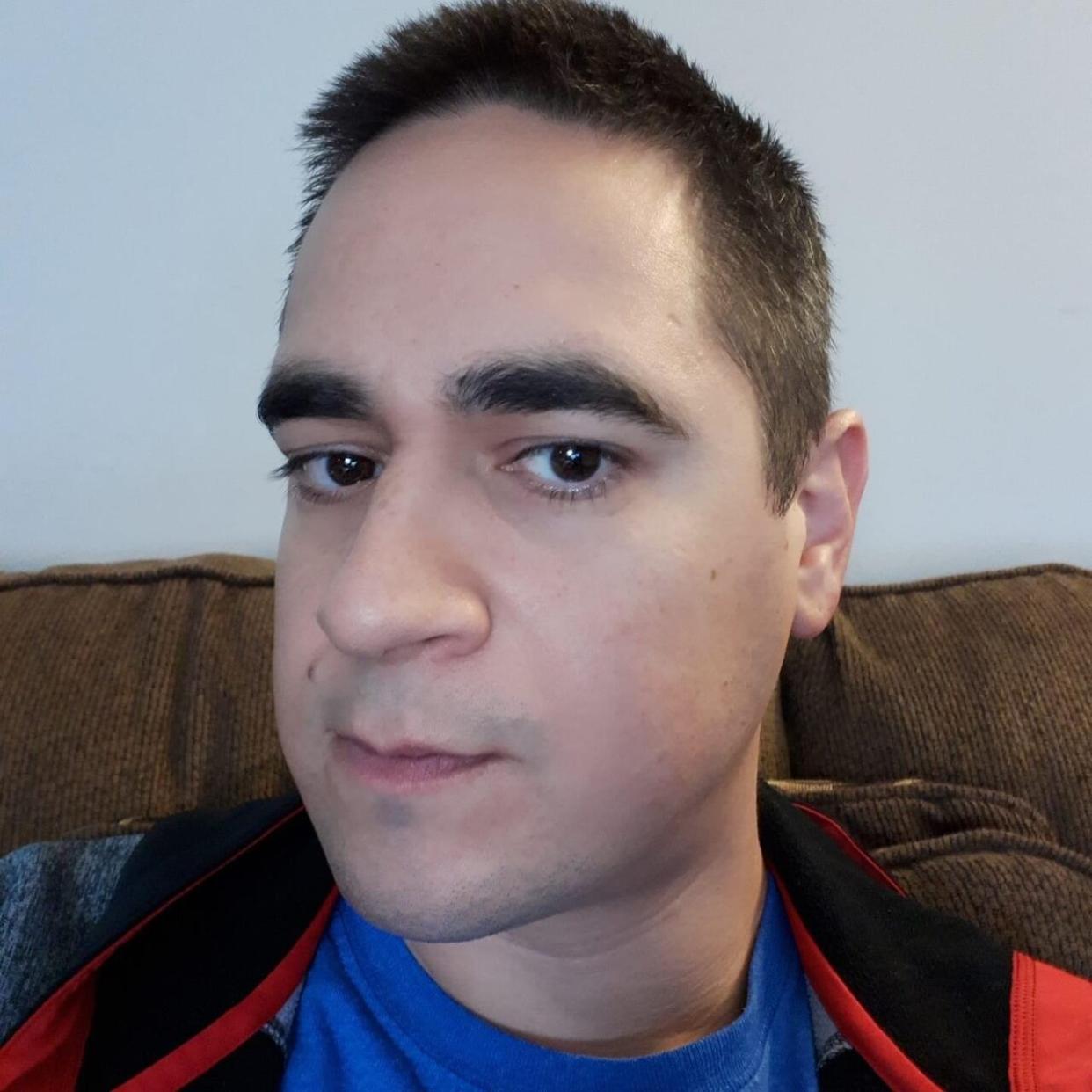
A panel is deciding whether a man who killed an Indigenous mother of three while he was in the grip of mania and paranoid delusions should be allowed the possibility of transitional living in the community within a year.
Adam Rossi, 42, is under the jurisdiction of the Ontario Review Board, an independent tribunal that takes over from the courts when someone is found not responsible for their crimes due to mental illness.
It will meet once a year to make decisions about where Rossi will be held or allowed to live until he meets the bar for an absolute discharge into the community.
Rossi killed Sommer Boudreau, 39, at the duplex he was renting in Deep River, Ont., the night of Dec. 9, 2022, after they had just met at a bar. He then cut off one of her hands, staged the scene to look like it was part of a horror film franchise, and ended up calling police from a Shoppers Drug Mart.
His first appearance before the board was held Thursday in a forensic unit boardroom at The Royal, Ottawa's mental health centre.
Wearing an orange jumpsuit, with his dark hair cut close to his scalp and handcuffs and shackles around his ankles, Rossi moved little and spoke only to say yes when asked if he understood what was being said.
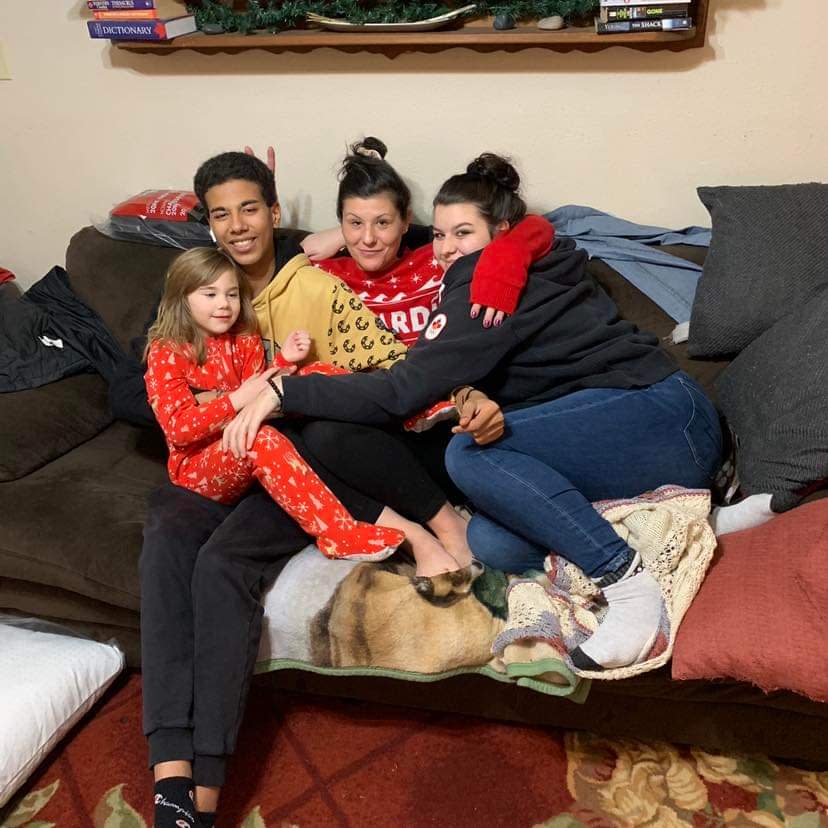
Sommer Boudreau, centre, with her three children Ashley Ahokas, Tyee Boudreau, and Tia Boudreau, during their last Christmas together. (Supplied by Christopher Halliday)
Still in jail due to bed shortage
Despite being found not criminally responsible more than three months ago, Rossi is not yet being treated at The Royal.
He's still being held at Ottawa's jail because The Royal's forensic assessment unit doesn't have enough beds to meet demand.
Dr. Floyd Wood, a psychiatrist who authored a recent risk assessment on Rossi for The Royal, said that as of Thursday, Rossi was seventh on a waiting list of 15 people at the Ottawa-Carleton Detention Centre who are deemed not criminally responsible and need care.
While Rossi waits, he's being held in protective custody — specifically, a back room area in the jail's maximum security unit — because people who commit crimes against women can be targets of violence by other inmates, Wood said.
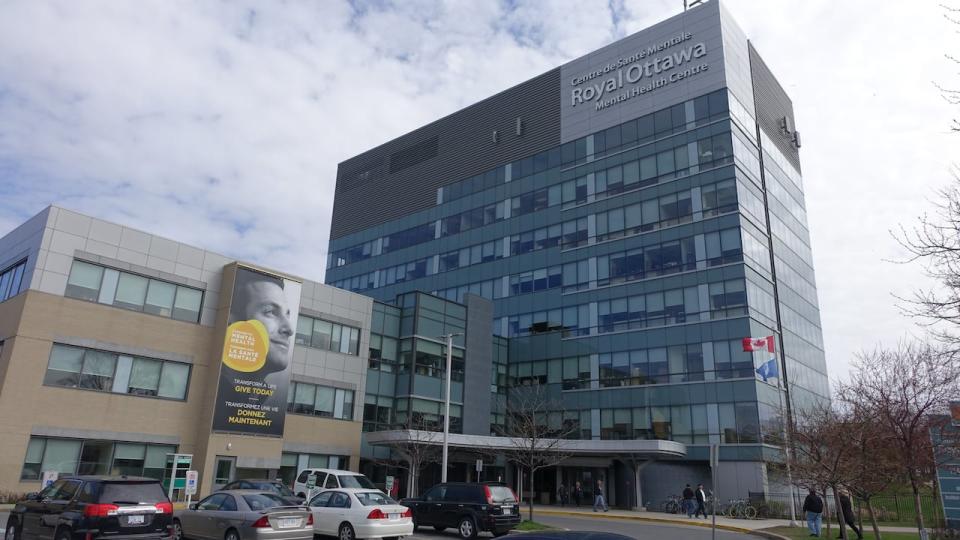
There are 15 people at Ottawa's jail who are not criminally responsible and are currently waiting for beds at The Royal, pictured here. Rossi is number seven on that list, and it could be still months before he's transferred. (Giacomo Panico/CBC)
Could transition to independent living
The hospital's position is that Rossi continues to pose a danger to the public and needs to be detained for the year, Wood told the board.
His report recommends Rossi be kept at the medium-secure Royal, with the possibility of getting him into a Royal-run supportive housing program to transition to independent living, with eight hours of daily supervision.
Before that, Rossi would go to The Royal's forensic assessment unit, which has no outdoor or community privileges. If staff decided he was doing well, he could be transferred to the forensic rehabilitation unit (after another wait for a bed) and gradually get privileges starting with fresh air breaks.
And if staff decided he was ready after all that, he could end up in the transitional rehabilitation program within the year — if the board agrees with that plan.
His defence lawyer, Marni Munsterman, agreed with the hospital's proposal. Under questioning from Munsterman, Wood said Rossi understands and accepts that he has a major mental illness and needs medication for the rest of his life.
Wood also said the violence Rossi committed has improved his insight for now.
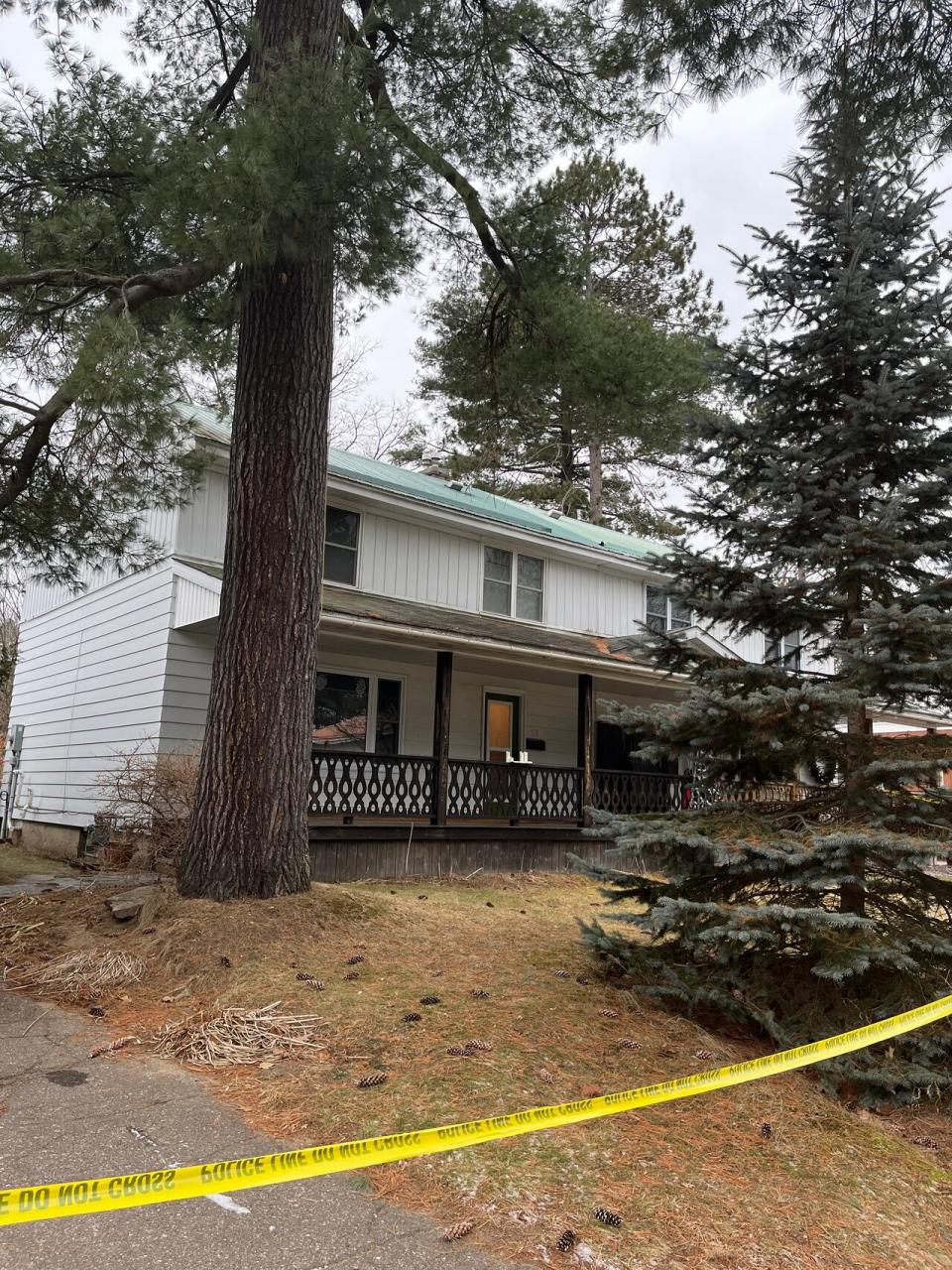
Sommer Boudreau's body was found in the second-floor bedroom of this duplex on Rutherford Avenue in Deep River, Ont., which was rented by Rossi. Police were alerted to check the duplex when Rossi called 911 that night in a state of mania and paranoid delusion. (Kristy Nease/CBC)
Rossi has stopped taking drugs in the past
But insight can fluctuate, Wood added.
Another issue is that Rossi is objecting to the treatment the hospital prefers: a long-acting injectable antipsychotic. Rossi tried it briefly, but didn't like the side effects and has refused it since, Wood said. He's on an oral antipsychotic and has been in remission with no sign of mania or psychosis for about 14 months.
Dr. Reghuvaran Kunjukrishnan, also a psychiatrist, noted that many psychiatrists have tried to treat Rossi in hospital and instill insight over the past 10 years without success, and that Rossi has had "many, many, many, many relapses."
Rossi is taking his drugs in the secure environment of the jail, but the board heard that in the past, once he's out of hospital and back in the community, he quickly stops taking them.
"If he has wonderful insight as you suggested, how come he's ... not acknowledging long-acting injection so that he can minimize the relapse of future illness?" Kunjukrishnan asked.
Wood said they'd continue to explore the idea in treatment, but noted the hospital can't force drugs on people.
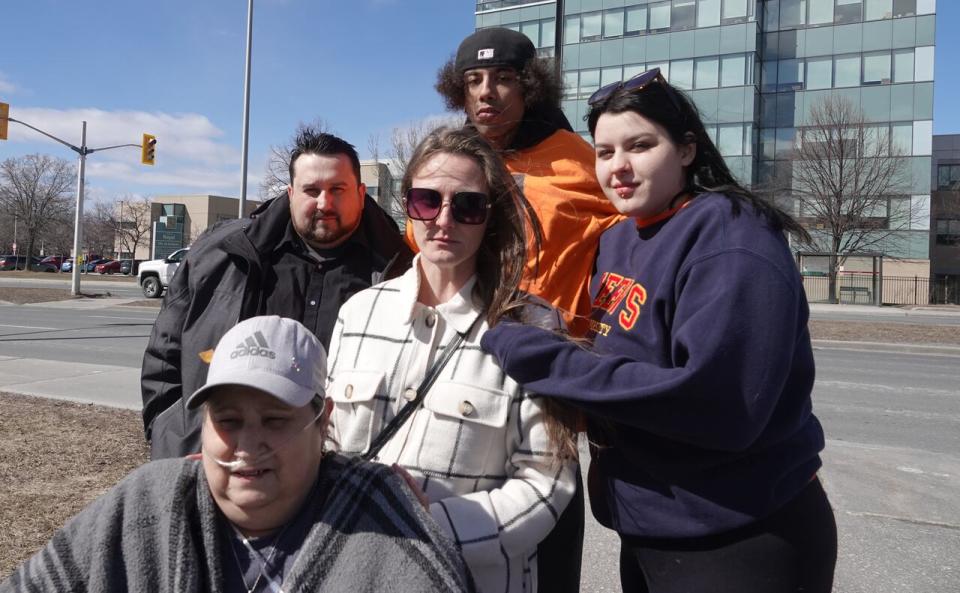
From left to right: Carrie Boudreau, her only surviving child Christopher Halliday, Shallen Dearing, Sommer Boudreau's son Tyee Boudreau, and her daughter Tia Boudreau, stand outside the Royal Ottawa Mental Health Centre after Adam Rossi's first Ontario Review Board hearing on Thursday. (Kristy Nease/CBC)
Crown objects to approved living in community
Joel Goldenberg, the panel chair, later asked Wood why the board would allow transitional living within the year, instead of detaining Rossi at The Royal's assessment unit with no privileges or at the province's only maximum security facility in Penetanguishene, Ont.
"Why would we give the hospital the right to let this guy go into the community for a couple of hours on his own? I need help with why would we do that, given our obligation to consider, in the first place, public safety," Goldenberg asked.
Wood said he couldn't help, that his report speaks for itself, and the board decides.
Assistant Crown John Wright disagreed that Rossi should be allowed into transitional housing within the year.
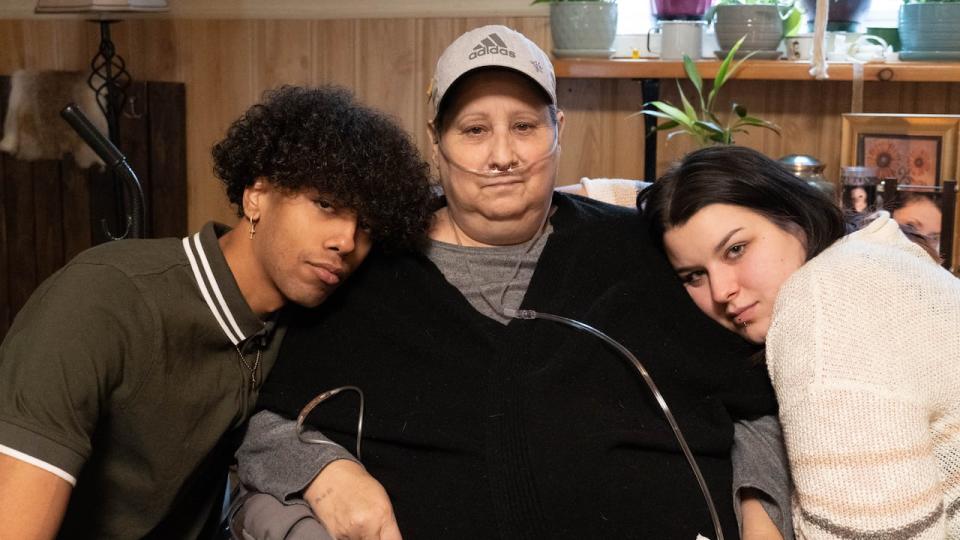
Carrie Boudreau, centre, with two of her grandchildren, Tyee and Tia Boudreau, at Carrie's home in Petawawa, Ont., on Dec. 7, 2023. (Jean Delisle/CBC)
No time for most victim impact statements
An awkward moment came when Goldenberg told the family the board wanted to end the proceeding by noon, but reading victim impact statements would keep them another hour.
He asked if they would forgo reading them out, but the family insisted that Carrie Boudreau, Sommer Boudreau's mother, at least be given the chance. She didn't get the opportunity in court.
She called Rossi a "frequent flyer of the mental health system," saying that members of his own family were concerned about his behaviour and state of mind and were "feeling something terrible was going to happen."
"And here we are. Here we stand. Where does accountability lie? With who? I feel Mr. Rossi has fallen through the cracks, and the severity of his mental health was overlooked," she said.
"Without 100 per certainty that this will never happen again, Mr. Rossi cannot be released."
Outside, after the hearing was over, the family said the process stung them. But Carrie Boudreau said she was glad to get the chance to try to convince the board to keep Rossi where he needs to be, "so that no other family has to go through what I went through.
"I don't want another family standing beside me."
The board's decision is expected to be released in about two weeks.

